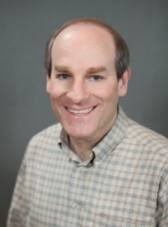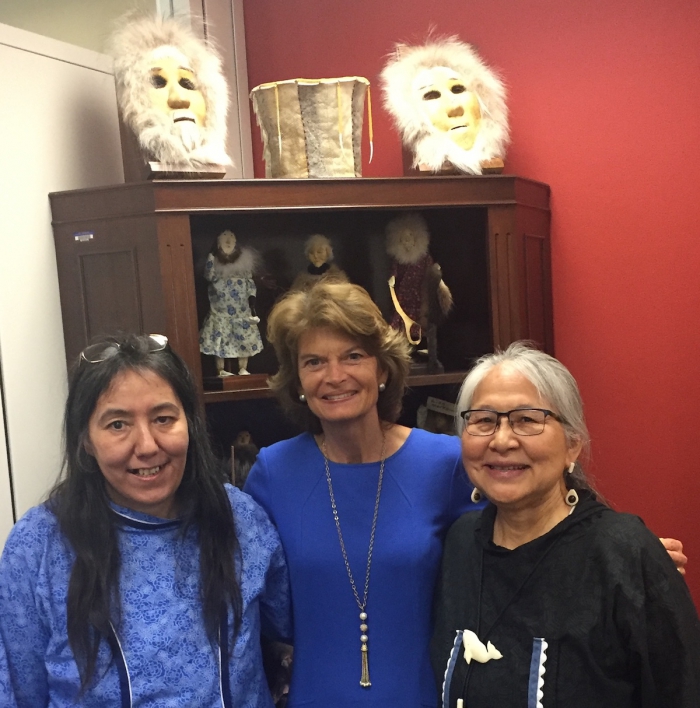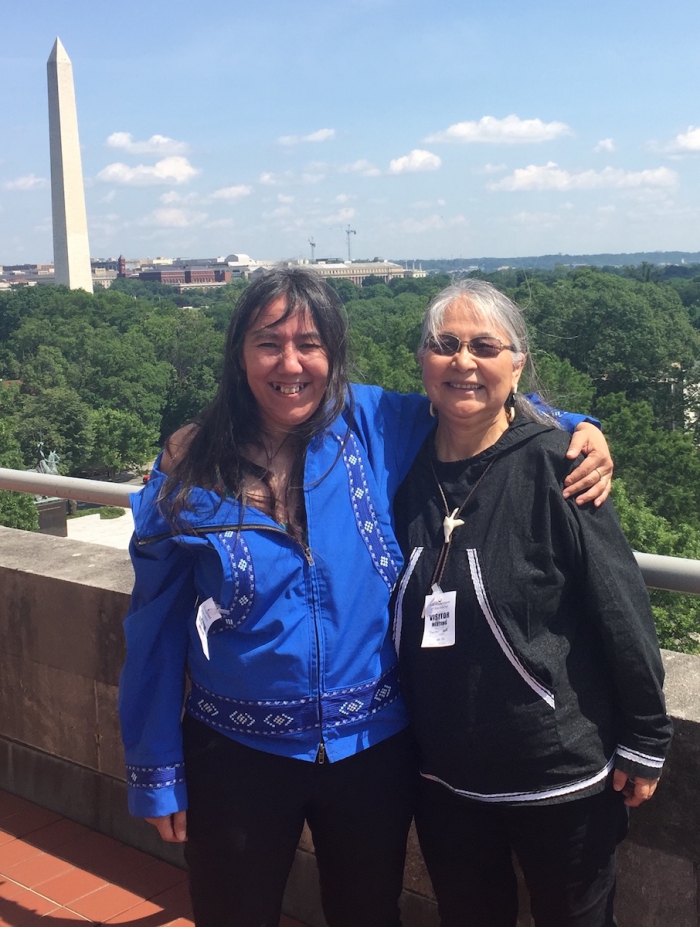By: Robert H. Rich, Ph.D., CAE, Executive Director, ARCUS

There are significant gaps in communication, culture, connections, knowledge systems, and (of course) distance between remote Arctic villages and the U.S. capital in Washington, D.C. Through our work in the Arctic, we have encountered many outstanding scholars who often go unheard in the centers of power, with information to share and stories to tell.
To begin to bridge those gaps and to support Arctic Indigenous scholarship in informing policy and decision-making, ARCUS and the Inuit Circumpolar Council-Alaska this year partnered to organize a pilot program "Empowering Arctic Indigenous Scholarship and Making Connections." We convened a distinguished selection committee of Arctic Indigenous experts and leaders, policy-makers, and researchers to select two outstanding scholars from among the many applications we received. We then worked with the scholars to plan meetings and activities that would support their priorities during a five-day trip to our nation's capital. For the purpose of this program, we define scholarship as a person who is an expert within their own knowledge system. No formal education is required.
In this article, I'd like to share some personal reflections on the visits, of which I was privileged to be a part. The two scholars are inspiring and articulate observers and communicators of the Arctic as experienced by their communities.
Dr. Rosemary Ahtuanguarak is a community health aide from Nuiqsut, who has held a variety of local leadership positions and is an advocate of community rights in light of the oil development occurring in close proximity to her village. She speaks of dramatic health effects and impacts on subsistence activities that she has seen throughout her community, many of which correlate with emissions, pollution, and development. Located in the central North Slope, Nuiqsut is close to the center of current development projects, including Alpine and Greater Moose's Tooth 1 and 2.
Dr. Theresa Arevgaq John is an Associate Professor at the University of Alaska, Fairbanks with strong roots in her village of Toksook Bay on Nelson Island in Southwest Alaska. She has seen her community stressed by climate change, including recent deaths of two youths traveling on the ice, and the suicide of two others. She bears witness to the haul-out of thousands of walrus on her island this summer, driven by declining sea ice in the region. She speaks of how this behavior is highly unusual, unknown to elders in any past experience, and how it is having devastating effects on subsistence.
The visit to D.C. was planned for 22 - 26 May 2018 on the ground here, with about a day's travel from both remote communities before and after. As often happens with Arctic travel, Rosemary's flights were cancelled and delayed due to weather (in both directions), causing her to be in the air during the time of our planned webinar/seminar featuring them both. As it was, Theresa did a magnificent job presenting at the seminar held in the ARCUS D.C. Office, which was attended by officials from IARPC, other stakeholders, and decision-makers, as well as people from around world by webinar. The recording is available on our website. We expect to schedule a future webinar featuring Rosemary.
Theresa and I met with program officers from the National Science Foundation in Polar Programs, who are very supportive of Arctic Indigenous scholarship. They had great ideas to further enhance their impact and make connections. We also met with officials from the Environmental Protection Agency, who engaged in productive discussions around better tying community environment needs in Indigenous villages with scholarship and research.
Rosemary arrived later that night, and we began the second day of the visit at the U.S. State Department, whose Office of Ocean and Polar Affairs was interested in thinking about the international implications of the Scholars' work. At the Smithsonian Museum's Arctic Studies Center, all of the scholars there had a vibrant interaction around the Scholars' stories, and how they can be connected with the Museum's activities that engage local expert knowledge, both in D.C. and in Anchorage. The Scholars were met by a very warm welcome by Senator Lisa Murkowski (R-AK) and many of her staff up on Capitol Hill. She agreed to help with and look into several of their concerns, and introductions were made to relevant Senate committee staff as well. I took the attached picture of the Scholars with the Senator.

On the third day, we traveled out to Bethesda, Maryland, to visit with leaders from the National Institute of Environmental Health Sciences. Further possibilities for scholarship and communication about local environmental health issues were discussed. A highlight of the visit was the warm welcome that the Scholars received from the Office of the Secretary of the U.S. Department of the Interior, who hosted a private seminar for Department officials, held several private meetings with key officials, and basically introduced the Scholars to all the available senior people in the building. We even got to tour the office of the Secretary of the Interior.

As I reflect on the visit of the pilot pair of scholars, I'm very thankful that we could use the network of ARCUS and our partners to empower these impressive and passionate Scholars and to help to open the doors that allow them to make connections and develop relationships with decision-makers here. We learned a few things along the way to help with the next round of Scholars' visits, which we hope to announce later this year. Flexibility was certainly key, as the travel delays created some unforeseen hiccups. Overall, I am more convinced than before that scholarship being done by Arctic Indigenous people needs more visibility, the resources to be made available, and champions to strengthen their connections. The Scholars made a significant contribution to knowledge and awareness of the Arctic research and D.C. policy communities, from the attendees on the webinar to the inner reaches of the Department of the Interior to Capitol Hill. We are all better off for their having made the trip.
This program was made possible by generous financial support from the National Science Foundation Office of Polar Programs, and I want to thank Carolina Behe from the Inuit Circumpolar Council-Alaska, our selection committee volunteers, the many officials who opened their doors to the visiting Scholars. Particular thanks go to ARCUS colleagues Lisa Sheffield-Guy and Asma Shethwala, for their tireless efforts to make the visits happen.
Welcome New ARCUS Members (Since December 2017)
Canadian Studies Center at Michigan State University
Plus nine new individual members!
